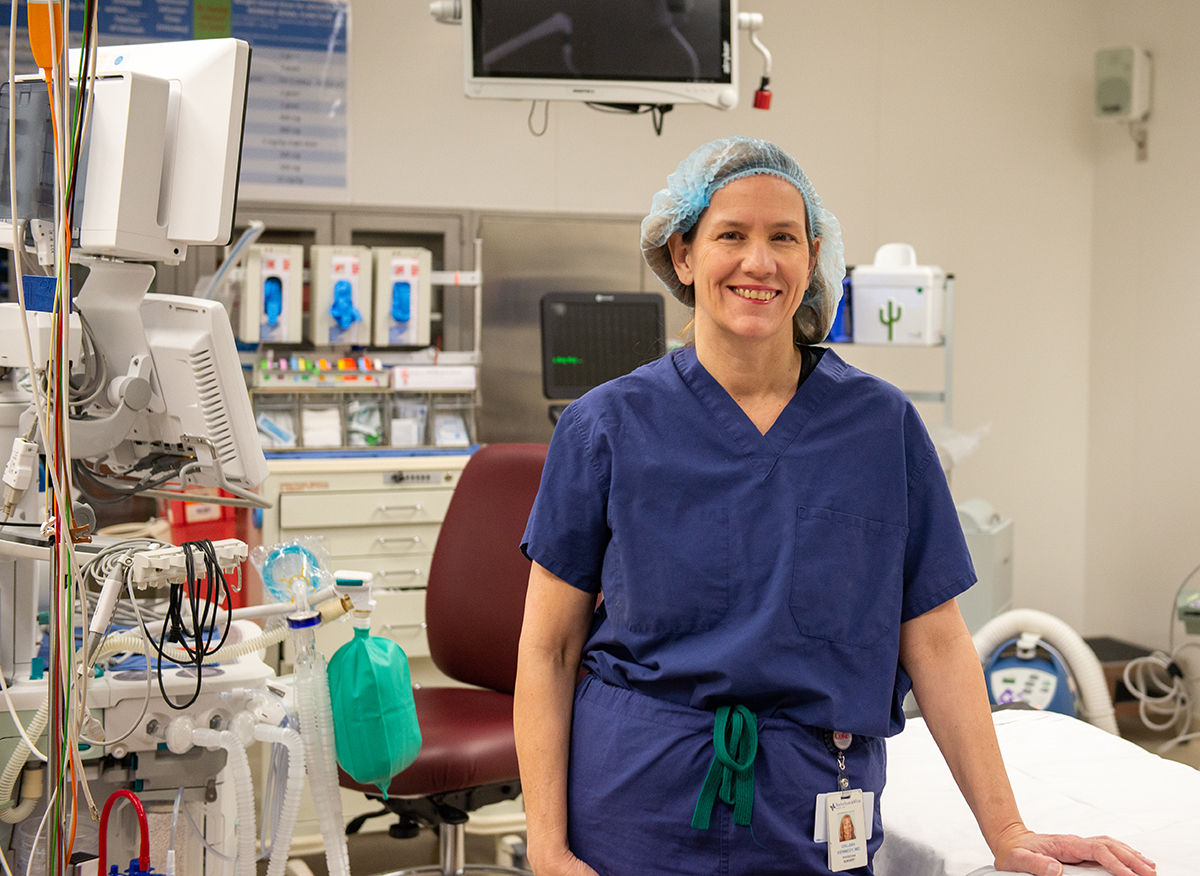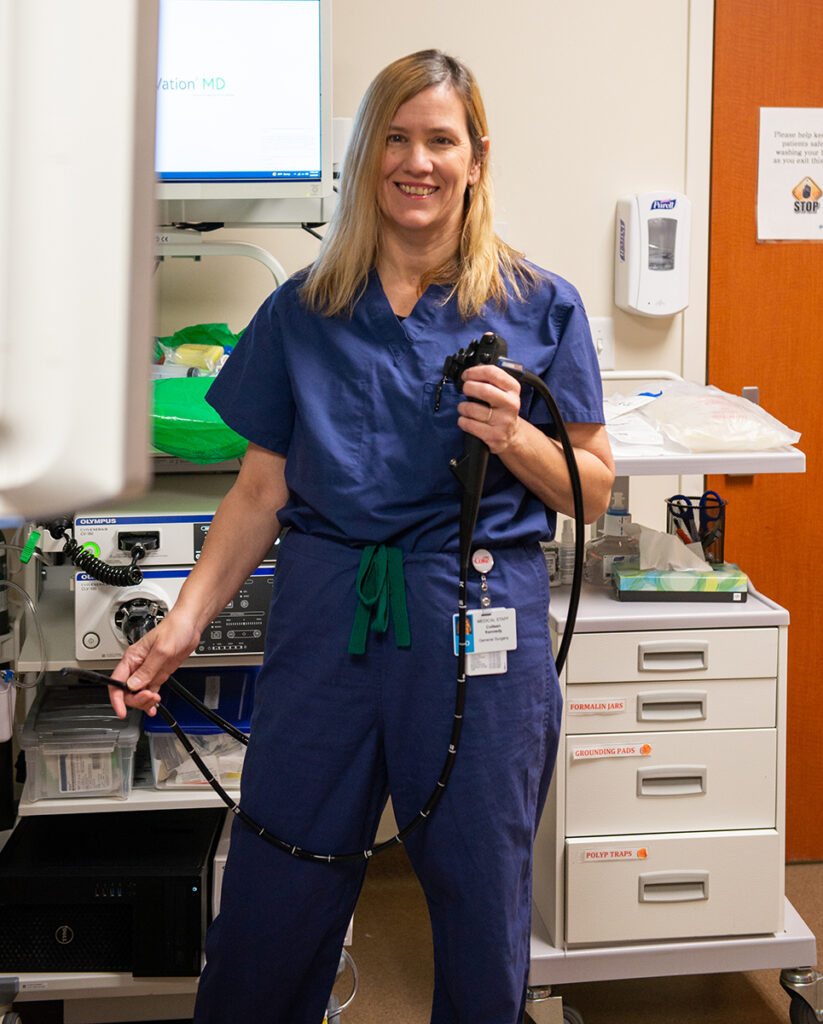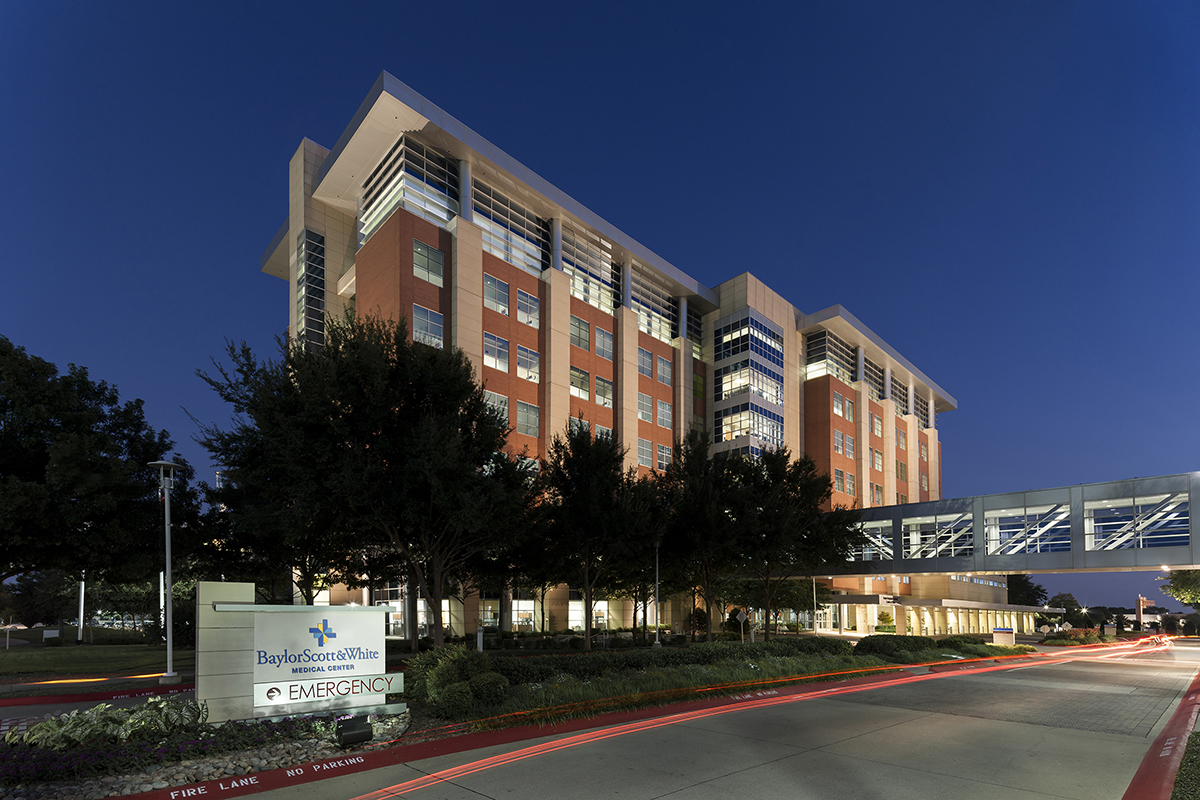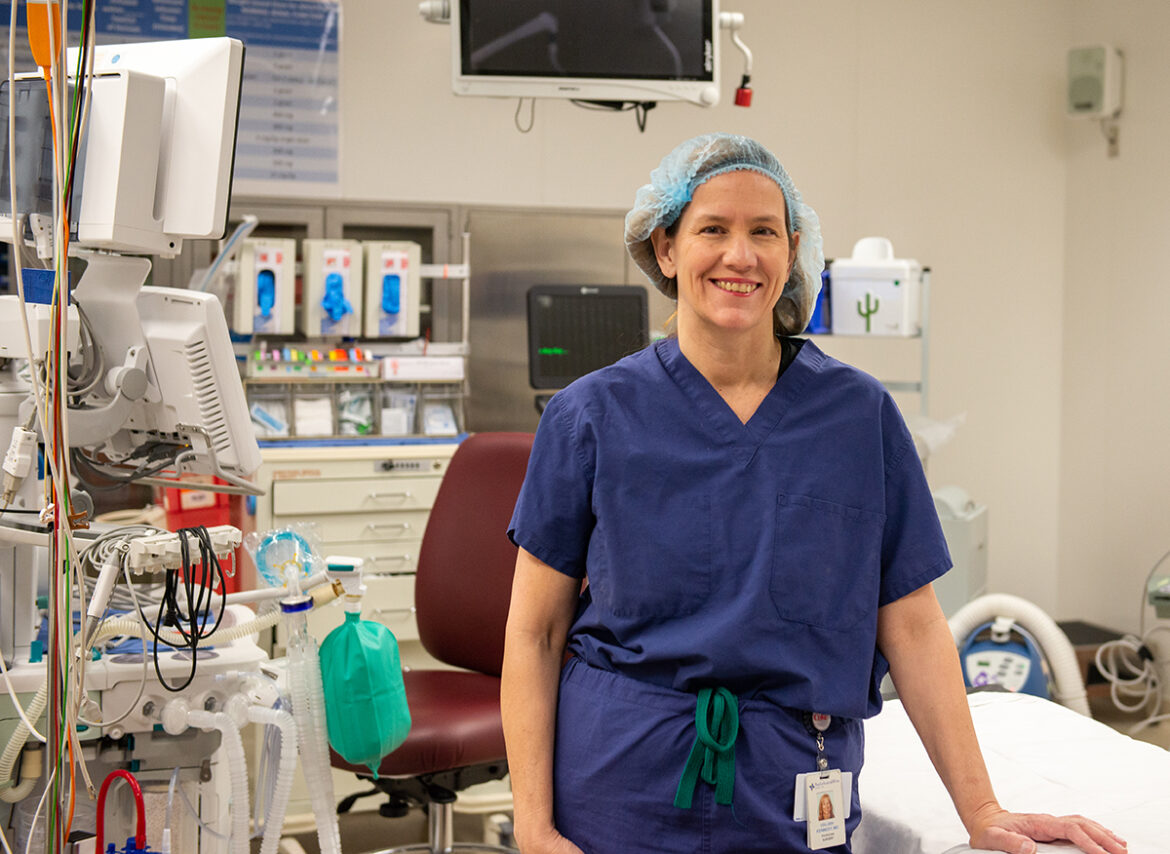
It’s a hot topic these days: Everywhere we look, we see ads touting the benefits of weight-loss drugs such as Ozempic® and Wegovy®.
But what’s the real story?
For people suffering with obesity, are such drugs a magic bullet for everyone?
How do drugs that encourage weight loss compare with bariatric surgery results?

Dr. Colleen Kennedy, M.D., medical director of Metabolic and Bariatric Surgery on the medical staff at Baylor Scott & White Medical Center – 40% of Americans are obese and have a BMI over 30.
“Obesity has a stigma; these medicines have made obesity acceptable to talk about as the illness that it is, and they’ve brought it to the forefront of today’s conversations.”
Originally, she says, these weight-loss drugs were developed to treat diabetes; but, surprising health benefits have emerged linking their use to substantial weight loss.
Overall, weight-loss drugs are well tolerated by most people, Dr. Kennedy says. But once a patient starts taking the drugs, the drugs must be taken indefinitely or the patient’s weight will increase again. Side effects from the drugs include the slowing of gut motility, nausea and pancreatitis, and they’re associated with thyroid cancer.
Another common side effect of weight-loss drugs can be insulin resistance, especially in post-menopausal women, Dr. Kennedy says.
Insulin resistance can also be a side effect for some teenagers and women who suffer from infertility, and the drugs can cause spontaneous miscarriages. Abdominal fat also is a byproduct of insulin resistance, Dr. Kennedy says.
The benefits of bariatric surgery are that it naturally decreases hunger helps regulate glucose metabolism; doesn’t have the side effects that accompany weight-loss drugs, and is proven to be a long-term obesity solution without drugs.
The most common options for bariatric surgery are gastric sleeve, gastric bypass and the duodenal switch, which is the least commonly used (less than 5% of patients). Lap bands and gastric balloons are other options, she says.
“Balloons are effective for a desired 20-to 40-pound weight loss over six months but not the go-to for someone 150 pounds overweight and with obesity genetics,” Dr. Kennedy says.
Bariatric surgery patients can expect initial soreness, she says. But within four hours of the procedure, patients are walking around to prevent blood clots or pneumonia, and they start consuming liquids within two to four hours of surgery. Some patients go home the same day, but others don’t; each case is different, Dr. Kennedy says.
Patients eat soft foods for one month following surgery and generally can eat regular foods within six weeks, she says. Patients can return to work within two weeks of surgery, depending upon the physical demands of the patient’s job.
With bariatric surgery, weight loss is immediate — typically one-third of excess body-weight is lost in the first three months after surgery, one-half in six months and up to 80 percent after one year, Dr. Kennedy says.
Baylor Scott & White Medical Center -– Plano performs more than 200 bariatric surgeries a year. Dr. Kennedy says for a long-term solution, surgery is the best option, but for those afraid of surgery, medicines are the best alternative route.
The ideal bariatric patient?
“Everybody is different, and nothing about this process is easy, but the surgery is for someone who has accepted obesity is a medical problem, is dedicated to lifestyle changes, makes a commitment and follows up,” Dr. Kennedy says.
For more information, contact Baylor Scott & White Medical Center – Plano today 469.814.5677


The above post is sponsored content. The above post is sponsored content.




